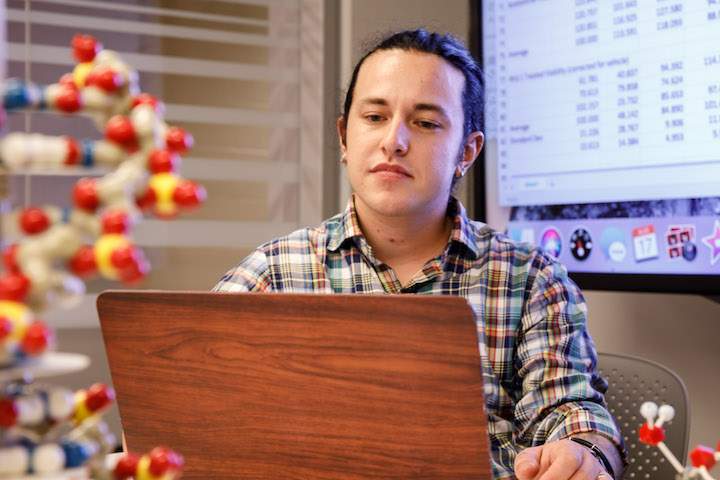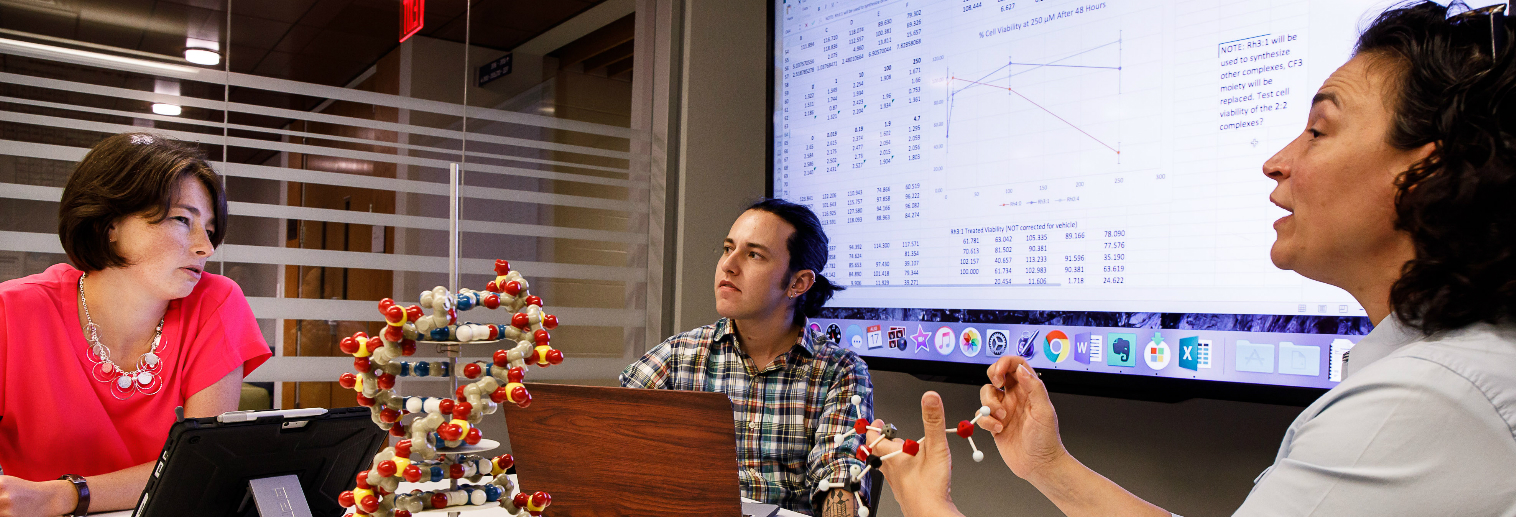Miles Lizak ’18
“DNA Binding Rates and Cytotoxicity of Rhodium Compounds”
Major: Biochemistry
Hometown: Fountain Hill, PA
Project Advisors: Dr. Shari Dunham and Dr. Anastasia Thévenin
Describe your project.
Over the course of the summer, I investigated a series of rhodium-based complexes that may prove useful as chemotherapy drugs by binding to double-stranded DNA inside cancer cells and killing them. I measured the rates at which several of these dirhodium complexes bound to DNA and compared them to the rest of the series (six complexes total). I then tested the cytotoxicity of the complexes on HeLa (human cervical cancer) cells. In the final weeks of the project, I conducted experiments to determine the cell permeability of the rhodium complexes.
How did your project come about?
I had been working on this series of dirhodium complexes with Dr. Dunham since January 2018 and was therefore familiar with the project, the concepts behind it, and the techniques used to measure the DNA binding rates of the complexes. Dr. Dunham approached me with the opportunity to apply for SOAR, and I agreed that it would be a valuable experience.

What’s the best part about working with your faculty mentors? What valuable insights have they brought to your project?
Dr. Dunham and Dr. Thévenin have been invaluable mentors. They have been patient with my questions and my mistakes. I felt totally supported, but they allowed me to come to my own conclusions and make my own decisions on the project, giving me a sense of effectiveness and autonomy.
What has been your biggest obstacle so far?
My biggest obstacle has been my own frustration. Research projects—unlike “canned” labs that are taught in classes—are full of uncertain results and unexpected hiccups. I often became frustrated when I did not understand a particular result, or when part of my experiment failed.
What has been your biggest takeaway from this experience?
My biggest takeaway (which I am still working on) is acceptance of failures and unexpected results without beating myself up. Sometimes things don’t work out as expected, and often it’s not because I did anything wrong. Each set of data and each failure can be a learning experience.
What was the result of your project?
At the end of this project, I was able to chart and compare the binding rates of all six rhodium complexes in the series. The cytotoxicity of three of the complexes was tested at various concentrations, and these were also graphed and compared. The cell permeability studies encountered some problems, but we gained valuable insight that will help us develop new methods of testing this.
Overall, how do you feel about being awarded this opportunity?
I am deeply honored to have been awarded the opportunity to conduct research within the SOAR program. I feel it has made me a more competitive candidate for graduate programs and has helped prepare me for a future career in research.
Will you present this research outside the SOAR presentations?
I plan to present a poster or talk about this research at Moravian’s Scholarship Day this upcoming school year.

